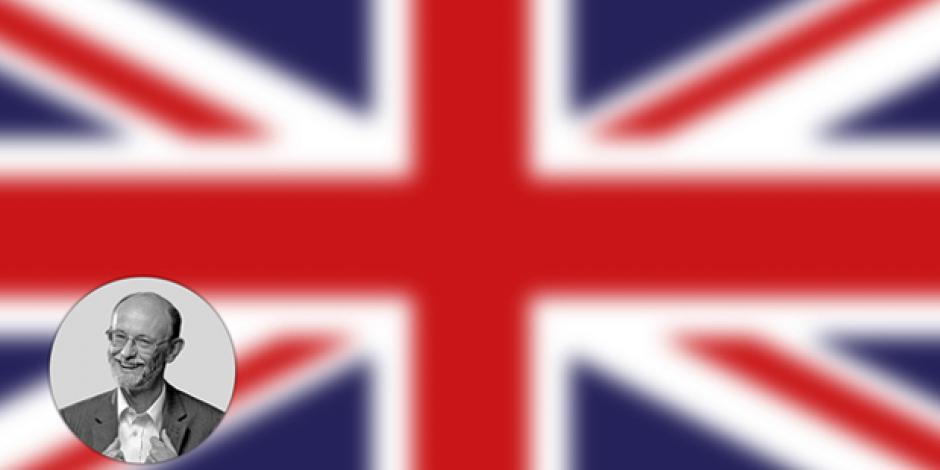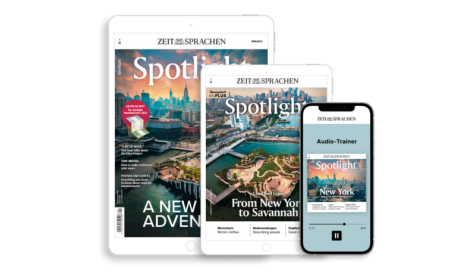Starten Sie den Audio-Text
Mit dem Audio-Player können Sie sich den Text anhören. Darunter finden Sie das Transkript.
Transcript: Back to the roots
Wales and England have been joined politically since the middle of the 16th century. However, the Welsh have to retainbeibehaltenretained a cultural and linguistic identity that can sometimes to mystify sb.jmdn. vor ein Rätsel stellen, verwirrenmystify their English neighbours. In Britain Today, Colin Beaven feels it’s time he did something to improve the situation.
Beaven is a Welsh name. Is it time I took this more seriously? Should I visit Wales and reconnect with my roots?
after allimmerhin, schließlichAfter all, Beaven is almost Bevan, a big name in Welsh politics. Aneurin Bevan was the Labour minister who to oversee sth.etw. überwachenoversaw the introduction of the National Health Service (UK)nationaler GesundheitsdienstNational Health Service in 1948.
So, Wales, here I come — or possibly not. Thanks to the virus, you have to to think twicees sich gründlich überlegenthink twice before travelling. At one point, Wales had a lockdown when England didn’t, so it was illegal to go there.
This even to affectbetreffenaffected plans for a drive-in cinema at a football stadium in Chester. When it was pointed out that toilets on the far side of the car park were actually in Wales, some portabletransportierbar, mobilportable ones had to be brought in to make sure nobody had to cross the border — or their legs.
So, if I’m not able to visit Wales, how could I recreate it? Learn Welsh? It doesn’t look like an easy language to learn. A page of written Welsh looks as if the alphabet has exploded. One step at a time, I think; I’ll start with the letter L.
I’m not saying L is the most common letter in the Welsh language. You don’t get many points in Welsh Scrabble for using a Y or a W, which count as vowelVokalvowels. But many Welsh towns and villages start with a double L, such as Llandaff or Llandudno. It’s a special Welsh sound — a beautiful hissZischen, Fauchenhiss, like that of a cat in a bad mood. The English ignore it, of course, and pronounce it as a normal L.
I could add an extra L to items on my shopping list — or “llist”. We could do with new llamps for the lliving room. Or we could llimit our dietErnährungdiet to Welsh specialities such as llamb, leekLauchlleeks and laver breadGericht aus gedünsteten Meeresalgenllaver bread — assumingvorausgesetztassuming they sell them at Llidl.
Fortunately, all this is unnecessary. We’re already surrounded by a very Welsh name with double L: Lloyd. Britain’s second-biggest bank is Lloyds. It’s also the name of a chain of pharmacyApothekepharmacies. We have David Lloyd health clubs, Andrew Lloyd Webber and, of course, Nick Lloyd, who reads this column so beautifully on Spotlight audio.
Not that Nick or any other of the people in my list of Lloyds actually come from Wales, but it all helps to make life feel a bit Welsh.
What does the name Lloyd mean? It comes from the Welsh word for “grey”. But Welsh colours don’t quite match English ones: llwyd can be brown, or even blue. The word glas can mean “blue”, but also “green”. And there’s another word for green: gwyrdd.
It’s hard enough for any couple to agree on a colour when a room needs repainting. It must be a constant nightmareAlbtraumnightmare if one half speaks Welsh and the other doesn’t.
I wonder if Lord Lloyd Webber’s slightly Welsh name had anything to do with the theme he chose for his first big hit musical: Joseph and the Amazing Technicolor Dreamcoat. I doubt it. And I doubt he’ll ever write one based on Fifty Shades of Grey.
Neugierig auf mehr?
Dann nutzen Sie die Möglichkeit und stellen Sie sich Ihr optimales Abo ganz nach Ihren Wünschen zusammen.



